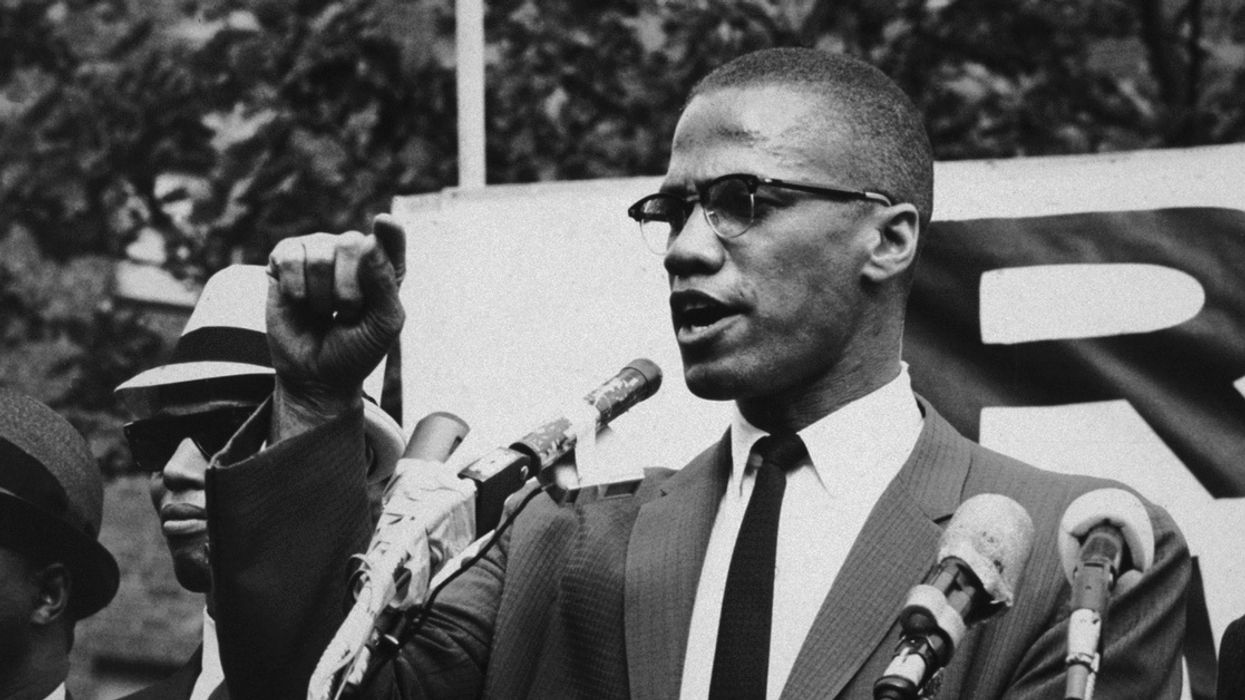In the ongoing tale of American civil rights, Malcolm X is a towering figure. More than half a century later, his work is both inspiring and controversial among those who study it. One small benefit to scholars has been the opportunity to read X's perspective on his own life through The Autobiography of Malcolm X. Sadly, it's long been known that several chapters X wrote for his memoir were ultimately cut out, including one which addressed head-on the situation of African Americans in the United States. Now, for the first time ever, it seems those lost pages might see the light of day.
Malcolm X was assassinated in 1965 by three members of an extremist group he had once been a member of and become disillusioned with. Upon his death, several chapters were cut from X's autobiography because they were thought to be "too incendiary." It wasn't until 1992, when a collector bought some of a Malcolm X collaborator's old belongings at an estate, that the public became aware of the book's unpublished passages.
Almost without warning, however, the unpublished chapter entitled "The Negro," appeared for auction at a Manhattan auction house. It was purchased by New York Public Library's Schomburg Center for Research in Black Culture for $7,000 and will likely remain a mystery no longer.
At the same auction, a manuscript of the eventually published version of the book went up for sale at $40,000, which, at first, attracted no bids. Shortly thereafter, however, The Schomburg Center purchased this document as well, notable for its inclusion of negotiations between Malcolm X and his collaborator Alex Haley.
Kevin Young, Director of the Schomburg, commented:
'The Autobiography' is one of the most important books of the 20th century. To have the version with Malcolm X's corrections, and to be able to see his thoughts taking shape, is incredibly powerful.
The chapter which has been recovered offers a scorching and frank analysis of race relations prior to Malcolm's split with The Nation of Islam. It begins:
The Western World is sick. The American society — with the song of Christianity providing the white man with the illusion that what he has done to the black man is 'right' — is as sick as Babylon. And the black man here in this wilderness, the so-called 'Negro,' is sickest of them all.
Malcolm writes:
We are like the Western deserts; tumbleweed, rolling and tumbling whichever way the white wind blows. And the white man is like the cactus, deeply rooted, with spines to keep us off.
Though his views are still matters of discussion and debate, the opportunity for Malcolm X to weigh in himself will surely be a welcome one for historians, many of whom are simply happy these precious artifacts haven't fallen into the hands of another private collector.














 @DuncanCecil/X
@DuncanCecil/X @@realDonaldTrump/Truth Social
@@realDonaldTrump/Truth Social @89toothdoc/X
@89toothdoc/X @xray_media/X
@xray_media/X @CHRISTI12512382/X
@CHRISTI12512382/X
 @sza/Instagram
@sza/Instagram @laylanelli/Instagram
@laylanelli/Instagram @itssharisma/Instagram
@itssharisma/Instagram @k8ydid99/Instagram
@k8ydid99/Instagram @8thhousepath/Instagram
@8thhousepath/Instagram @solflwers/Instagram
@solflwers/Instagram @msrosemarienyc/Instagram
@msrosemarienyc/Instagram @afropuff1/Instagram
@afropuff1/Instagram @jamelahjaye/Instagram
@jamelahjaye/Instagram @razmatazmazzz/Instagram
@razmatazmazzz/Instagram @sinead_catherine_/Instagram
@sinead_catherine_/Instagram @popscxii/Instagram
@popscxii/Instagram
